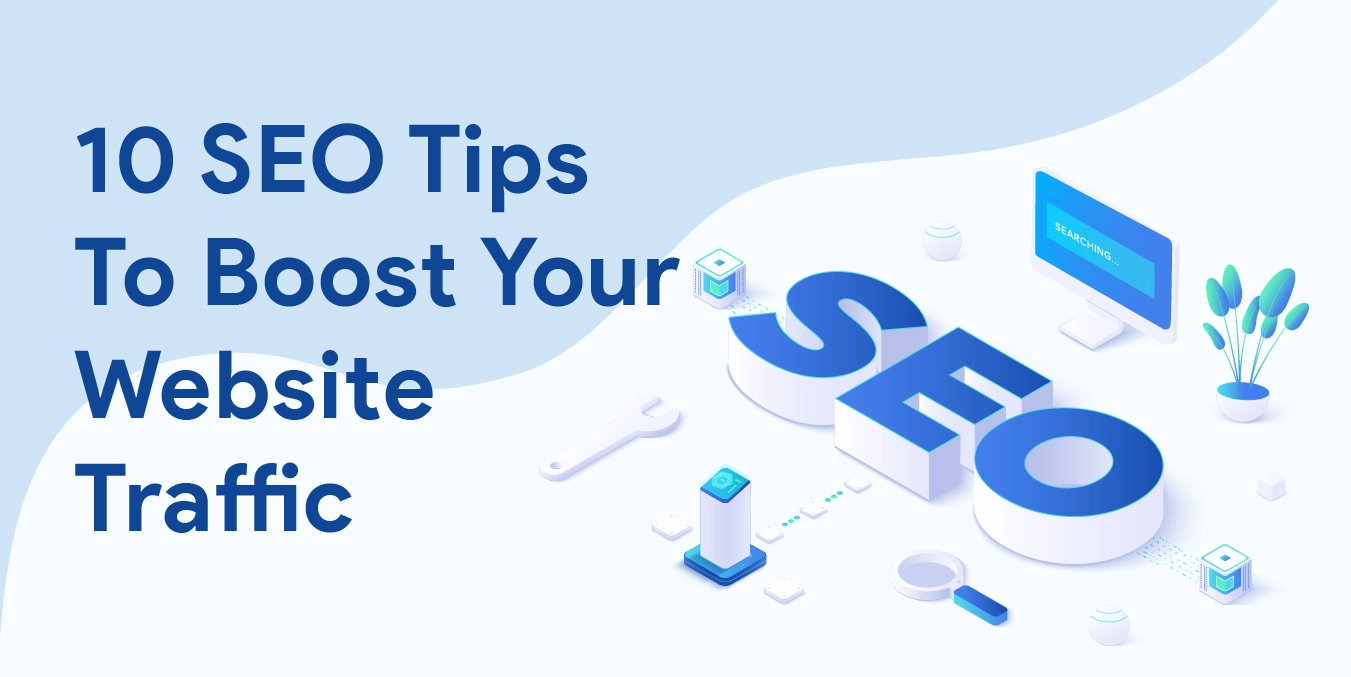10 Effective SEO Strategies for Boosting Your Website Traffic
The online world is a crowded space, and for businesses, standing out from the competition is crucial. In today’s digital age, a well-optimized website is a must-have. But how do you ensure your website ranks high in search engine results pages (SERPs) and attracts your target audience? The answer lies in effective SEO (Search Engine Optimization) strategies.
By implementing these strategies, you can send the right signals to search engines, improve your website’s visibility, and ultimately drive more organic traffic to your site. Here are 10 powerful SEO strategies to get you started:
In the ever-evolving world of digital marketing, Search Engine Optimization (SEO) remains a cornerstone for boosting your website’s visibility and attracting organic traffic. With search engines like Google constantly updating their algorithms, staying ahead of the curve with effective SEO strategies is crucial for maintaining and improving your online presence. In this blog post, we’ll explore 10 proven SEO strategies that can help skyrocket your website traffic and propel your online success.

-
Keyword Research: The Foundation of SEO:
Keyword research is the cornerstone of any successful SEO strategy. It involves identifying the terms and phrases your target audience is actively searching for online. Think about the questions they might ask and the problems they might be trying to solve. By incorporating these relevant keywords throughout your website content, from page titles and meta descriptions to headings and body text, you signal to search engines what your website is about and who it caters to.
-
Content is King (and Queen):
Search engines prioritize websites that offer valuable and informative content to users. Focus on creating high-quality, engaging content that addresses your target audience’s needs and pain points. This could include blog posts, articles, infographics, videos, or any other format that provides value and keeps users coming back for more.
-
On-Page Optimization: Sending the Right Signals:
On-page optimization refers to the technical aspects of your website that influence search engine ranking. This includes optimizing page titles and meta descriptions, ensuring proper header hierarchy (H1, H2, etc.), using internal linking to connect related pages, and optimizing images with descriptive alt text.
-
Technical SEO: The Underpinning of Success:
A website’s technical health plays a crucial role in SEO. This involves ensuring your website is mobile-friendly, has a fast loading speed, and is built with a clean and crawlable code structure. Search engines prioritize websites that offer a smooth user experience on all devices.
-
Backlinks: Building Trust and Authority:
Backlinks are essentially links from other websites pointing back to yours. Search engines view backlinks as a sign of trust and authority. The more high-quality backlinks your website has, the higher it’s likely to rank in search results. Focus on creating link-worthy content that other websites will want to cite and share.
-
Embrace the Power of User Experience (UX):
Search engines are constantly evolving to prioritize websites that offer a positive user experience (UX). This means ensuring your website is easy to navigate, visually appealing, and provides clear calls to action. A well-designed website keeps users engaged and coming back for more, which is a positive signal for search engines.
-
Stay Mobile-First:
With the ever-increasing use of mobile devices, it’s crucial to ensure your website is mobile-friendly. This means having a responsive design that adapts seamlessly to different screen sizes. Search engines prioritize mobile-friendly websites, and a poor mobile experience can significantly hinder your SEO efforts.
-
Local SEO: Getting Found in Your Neighborhood:
If your business caters to a local audience, optimizing your website for local SEO is essential. This involves claiming and verifying your Google My Business listing, using relevant local keywords throughout your website, and building citations from local directories.
-
Embrace the Power of Analytics:
SEO is an ongoing process, and data is your friend. Utilize website analytics tools like Google Search Console to track your website’s traffic, identify your top keywords, and understand user behavior. By analyzing data, you can refine your SEO strategy and focus on tactics that deliver the best results.
-
Stay Ahead of the Curve:
The world of SEO is constantly evolving. Search engine algorithms are updated regularly, and what works today might not work tomorrow. Stay updated on the latest SEO trends and best practices by following industry blogs, attending relevant webinars, and consulting with SEO specialists.
Implementing these 10 effective SEO strategies, you can boost your website traffic, improve your search engine rankings, and achieve sustainable growth and success in the competitive world of digital marketing. Remember that SEO is a long-term investment, and results may not be immediate, but with patience, persistence, and a strategic approach, you can achieve lasting success and unlock the full potential of your website. Happy optimizing!


